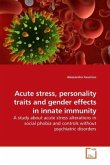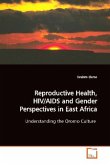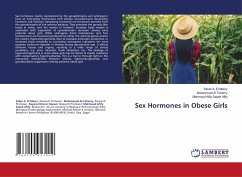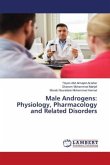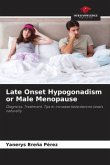Cardiovascular disease (CVD) is the major cause of
morbidity and mortality in developed countries. Men
have a higher incidence and an earlier onset of CVD
than age-matched women. It has been shown that young
women have lower CVD incidence than young men and the
increasein CVD rates in older (post-menopausal) women
whenestrogen levels decline suggests that estrogens
are cardioprotective. This theory has been
extensively investigated demonstrating a favourable
reduction in LDL, reducing expression of cell
adhesion molecules and promoting vasodilatation by
inducing nitric oxide (NO) production in endothelial
cells. However, not many studies have explored the
alternate theory that male sex hormones, androgens (T& DHT), may promote CVD. Investigators examining male
androgens in vivo have shown inconsistent results,
with both adverse and protective effects on
atherosclerosis formation. Overall, this study
demonstrated that male sex hormones have an effect on
atherosclerosis formation. Androgens have important
gender- and dose- specific effects on plaque
formation, and can hormonally regulate AR cofactors
at the mRNA and protein level.
morbidity and mortality in developed countries. Men
have a higher incidence and an earlier onset of CVD
than age-matched women. It has been shown that young
women have lower CVD incidence than young men and the
increasein CVD rates in older (post-menopausal) women
whenestrogen levels decline suggests that estrogens
are cardioprotective. This theory has been
extensively investigated demonstrating a favourable
reduction in LDL, reducing expression of cell
adhesion molecules and promoting vasodilatation by
inducing nitric oxide (NO) production in endothelial
cells. However, not many studies have explored the
alternate theory that male sex hormones, androgens (T& DHT), may promote CVD. Investigators examining male
androgens in vivo have shown inconsistent results,
with both adverse and protective effects on
atherosclerosis formation. Overall, this study
demonstrated that male sex hormones have an effect on
atherosclerosis formation. Androgens have important
gender- and dose- specific effects on plaque
formation, and can hormonally regulate AR cofactors
at the mRNA and protein level.


